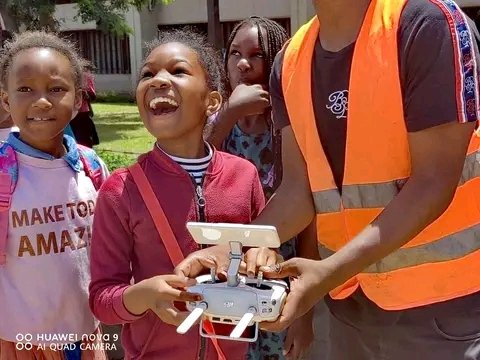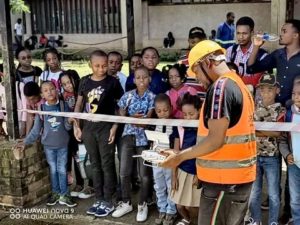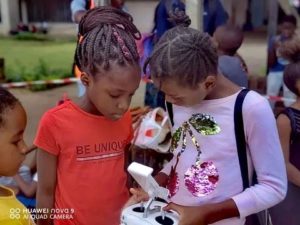By Chisomo Phiri
Nkhwazi Aeros, a Malawi’s drone service company that specializes in providing integrated solutions in Mapping, Crop Inspection, Mapping, GIS Surveying, Construction, Powerline, and Roof inspection in partnership with Malawi University of Business and Applied Sciences ( MUBAS) Innovation Hub will from June 25 to August 13,2023 conduct trainings in Programming for Kids using Python.
The course is said to be part of the Programming for Kids Series under ‘Hello Tomorrow Program’.
In an interview, Nkhwazi Aeros Project Manager Hope Kelvin said the course will cover variables and data manipulation, control structures, functions, game development, graphics, and many more.

He said those kids aged 11 to 17 are eligible for the course and that the fees is pegged atK 60,000.00.
Kelvin said nowadays drones are becoming increasingly popular and are being used in various industries for different purposes, such as agriculture, mapping, surveying, and monitoring therefore, a need for kids to be trained on how they can operate them.
“By providing training to kids on how to fly drones, we can prepare them for the future of work, where drone technology is likely to play a significant role.
“It can also create employment opportunities for young people in the drone industry.
“Moreover, drone technology has the potential to improve various sectors in Malawi, such as agriculture, where it can help increase productivity and yield through precision farming techniques,” he said.
Kelvin added ” Drones can also be used in disaster management, where they can aid in search and rescue missions or damage assessment.
“In summary, training kids on how to fly drones can help prepare them for the future of work and create employment opportunities, while also improving different sectors in Malawi through the use of drone technology.”
He said at Nkhwazi Aeros, their one potential future plan is to expand access to drone technology and training for kids in Malawi.
“This could be done through partnerships with schools, community organizations, or other stakeholders. By providing access to drone technology and training, more kids can learn about the potential applications of drone technology and gain skills that may be useful in their future careers.
“Another future plan could be to develop specialized programs that focus on specific applications of drone technology, such as agriculture or environmental monitoring. By providing targeted training, kids can develop skills that are in demand in specific industries, potentially opening up new employment opportunities,” he said.
Kelvin emphasized much on the importance of providing providing kids with access to drone technology and training as they have a wide range of benefits, both for the individuals and for societies as a whole.
He said :”By teaching kids about drone technology and its potential applications, we can inspire the next generation of innovators and problem solvers. Additionally, by providing training in drone technology, we can equip kids with skills that are in demand in a range of industries, potentially opening up new career opportunities.
“It is important, however, to ensure that drone flying for kids is done safely and responsibly. This means providing adequate training and education on drone safety, as well as following all relevant laws and regulations related to drone flying. By promoting the safe and responsible use of drone technology, we can help to minimize risks and maximize the benefits of this exciting technology.”
Nkhwazi Aeros was conceived by passionate individuals determined to solve Agriculture, Engineering, and Industrial problems by merging drone technology with solutions to simplify a company’s workflow.
Its pilots are highly trained through the African Drone and Data Academy (ADDA) and qualified to work in the Agriculture, Construction, Engineering, Transportation, Mining, Real Estate, and creative industries (film and TV).




